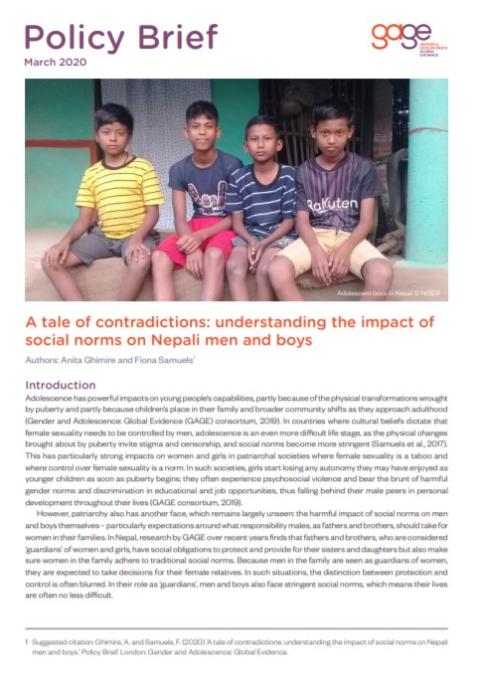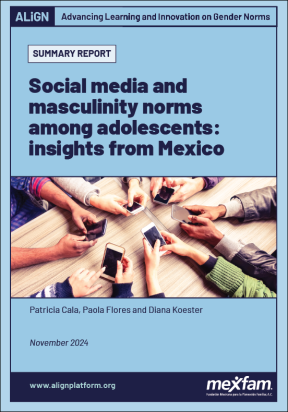- Briefing paper
- 1 Marzo 2020
A tale of contradictions: understanding the impact of social norms on Nepali men and boys
- Author: Anita Ghimire, Fiona Samuels
- Published by: GAGE

Adolescence has powerful impacts on young people’s capabilities, partly because of the physical transformations wrought by puberty and partly because children’s place in their family and broader community shifts as they approach adulthood (Gender and Adolescence: Global Evidence (GAGE) consortium, 2019). In countries where cultural beliefs dictate that female sexuality needs to be controlled by men, adolescence is an even more difficult life stage, as the physical changes brought about by puberty invite stigma and censorship, and social norms become more stringent.
However, patriarchy also has another face, which remains largely unseen: the harmful impact of social norms on men and boys themselves – particularly expectations around what responsibility males, as fathers and brothers, should take for women in their families. In Nepal, research by GAGE over recent years finds that fathers and brothers, who are considered ‘guardians’ of women and girls, have social obligations to protect and provide for their sisters and daughters but also make sure women in the family adhere to traditional social norms. Because men in the family are seen as guardians of women, they are expected to take decisions for their female relatives. In such situations, the distinction between protection and control is often blurred. In their role as ‘guardians’, men and boys also face stringent social norms, which means their lives are often no less difficult.
Providing the country-specific context to GAGE’s global synthesis of how to work effectively with adolescent boys in LMICs to promote gender-equitable masculinities, this policy brief discusses some rarely explored issues. It addresses the complexities, contradictions and deprivations in the lives of men and boys, highlighting how fathers and brothers can also experience harmful norms in the family, community and school, in relation to their adolescent daughters/sisters/peers.
This brief is based on qualitative data collected between 2018 and 2019 as part of a baseline study of World Vision’s Rupantaran programme, a peer-to-peer life skills education initiative in Biratnagar Nepal.
- Countries / Regions:
- Nepal
Related resources
Blog
14 Abril 2025

Report
19 Noviembre 2024

Report
13 Noviembre 2024
